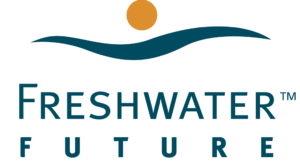PRESS RELEASE
Detroit, MI (July 7, 2022) – We The People of Detroit (WPD) joined U.S. Representative Rashida Tlaib, and a coalition of local advocates, residents, and experts to demand the Detroit Water and Sewerage Department (DWSD) engage fully and transparently with the community on its new Detroit Lifeline and Water Affordability Plan. At the press conference, Detroit’s ‘Mothers of the Movement,’ who have been fighting for affordable water rates for over 25 years, shared personal stories of the impact of water shutoffs, outlined water affordability policy ‘must haves,’ and urged DWSD to share plan details, including how the program will be administered and how it will ensure the end of water shutoffs.
Local organizations 48217, Brightmoor Connection, and the Water PEEPs Coalition, stood in solidarity with We The People of Detroit, who planned the event. The diverse coalition supports a sustainable, long-term water affordability program, but the water advocates voiced concerns on the lack of transparency surrounding DWSD’s plan. Event speakers included Cecily McClellan, Director of Water Works, We The People of Detroit; Teresa Landrum, Governor’s Appointee on the Michigan Advisory Council on Environment Justice; Debra Taylor, over a decade of water rights advocacy; Rev. Roslyn Bouier, Brightmoor Connection; Auntie Na, a local afterschool program manager; Emily Kutil, co-author of Mapping the Water Crisis and advocate; and Valerie Bailey, a Detroit resident affected by water shutoffs.
“Water is life. Water is a human right. After years and years of resistance, the City has unveiled a water affordability plan – except they didn’t consult the organizations who have been working on this issues for over a decade, water advocates and residents, on how to design it before it was approved by the Board of Water Commissioners,” said U.S. Representative Rashida Tlaib. “I am glad the City has decided to pursue a water affordability plan, but implementation matters with water affordability plans. Public input needs to lead to real improvements in how this plan is designed. We have an incredible opportunity to tap the collective knowledge and insights of Water Warriors and people struggling with water insecurity, but it needs to lead to real results. Our Water Warriors in the city have direct knowledge working with those impacted by not having access to clean, affordable water. Let’s all work together to give Detroiters the water affordability plan they deserve.”
DWSD announced the Detroit Lifeline and Water Affordability Plan at a virtual meeting on June 17. In a written response to DWSD, WPD asked that any water affordability plan adopted by the City of Detroit:
- Be detailed in writing and made available to the public for review and comment for at least 30-45 days;
- Fund the affordability program for the long-term, including developing a more equitable regional rate structure;
- Establish and empower an Ombudsman inside DWSD to serve as an advocate for the consumers of water and wastewater services;
- Guarantee that households at or below 200% of the Federal Poverty Level (FPL) are subject to an income-based rate for water and wastewater services, and eliminate the water and wastewater debt held by households at or below 200% FPL; and
- Create a transparent structure for tracking and reviewing program implementation, providing community members with detailed data and information about eligible households and the households reached through the program.
DWSD presented its plan to the Board of Water Commissioners on June 28, 2022, without public review or comment, and the plan was approved. Community advocates continue to share concerns on its long-term funding strategy, eligibility requirements, and program access and enrollment strategy.
“We cannot, in good faith to our community, support a water affordability plan that has not been reviewed and vetted by the community it is meant to serve,” said Monica Lewis-Patrick, President and CEO of We The People of Detroit. “We fully support a sustainable, long-term water affordability program and recognize that the Lifeline Plan seems to be a positive change in direction for DWSD. However, the water utility bypassed the democratic process once again – leaving those they serve in the dark. At this juncture, DWSD must pursue transparent engagement with the community, giving everyone an opportunity to provide input that will be taken into serious consideration to the improve of the Lifeline plan and truly serve the residents of Detroit.”
For more information:
www.wethepeopleofdetroit.com
Media Contact: Tiana Starks l 248.633.8620, tianastarks@ts2consulting.com








